Each classroom is like a machine. It is made up of various parts that make the machine only as strong and reliable as its weakest link. If one of the parts fail, it begins to break down. Just like any system, defined as combined activities, tasks and/or processes to work towards a common goal, everything has a job and plays a vital part in the overall functionality and efficiency of the system. If any part breaks down, it upsets the balance of the system. The goal of teaching is to maximize quality instructional time, the “uptime,” to meet the needs of all learners and to maximize student growth, progress and success. This is dependent on planning.
Planned Teaching is a proactive strategy for creating a structured, organized learning environment that minimizes “breakdown” and downtime. It’s a classroom system that maximizes teaching and student engagement with teachers who are highly skilled classroom managers using expert strategies in classroom management. This system runs like a well-oiled machine, all parts in place, all parts running efficiently, all parts working toward the goal: maximum quality teaching and student learning. No classroom can go without interruptions but being prepared to address such matters can prevent a complete disruption to the “system.” Learning how to move forward when a part fails or when the system is thrown off is all part of proactive, planned teaching along with some good old-fashioned experience.
Reactive Teaching is just the opposite. It is a reactive strategy where “emergency repair” is needed because parts are failing. Learning cannot continue until the problem is addressed. As a result, there is a cost. The costs are decreases in student learning and increases in deficiencies and gaps. There is an unplanned “production downtime.” In a production facility, this means production is stopped and no product is being produced and dollars are lost minute by minute, it adds up exponentially. For the classroom it means the lesson plan is interrupted, teaching stops and quality educational time is lost. This is critical in education. This means that the time students have in classes, in grades, in schools is finite. It will not go on forever. Lost quality educational time cannot be regained; it is a valuable commodity. With Reactive Teaching, instructional time is at its lowest, learning is minimal to none and behaviors are on the rise. Teachers are putting out fires left and right. The system fails.
Sometimes the system seems to be working just fine but there is still a need to do a check. There are things that you can’t see from the outside. And that’s where preventive maintenance comes in. Preventive maintenance is based on two things: 1. Recommended maintenance 2. To prevent something “bad” that has already happened in the past from happening again. Think about your body. Do you go to the doctor for annual check-ups just to make sure that your “system” is running at its best? How about your car? Do you get regular oil changes or an annual inspection? When we do these “maintenance” checks we may be able to find underlying conditions that we weren’t aware of and take action to “maintain” or to “prevent” something bad from happening in the future. Ultimately, the goal is to eliminate downtime due to unplanned interruptions by identifying problems early before they evolve into larger issues having a greater negative impact.
Check 1,2,3
-
Admins need to be completely present in the building and in all classrooms. This does not suggest that admins should be “checking up” on teachers, but rather the opposite—supporting and coaching their teachers. Admins should be aware of all the “systems” that are in place in their school and how they’re functioning. One question should always be in mind, “How can I help?” Do teachers have enough support? Enough resources? Enough training? Are all the parts in place to help each system run successfully in order to meet the ultimate goal?
-
Targeted Students- School teachers are those who consider ALL students their students, not just the ones in their class(es). Are there supports in place to help and monitor targeted students? Is it a team/school effort and not just the sole responsibility of the teacher(s)?
-
School Safety- Based on previous school shootings and safety issues, are safety concerns handled and discussed seriously with staff and are the proper supports in place to make sure that all students and staff feel safe?
With planned teaching and regular preventive maintenance checks, the ultimate goal can be reached.
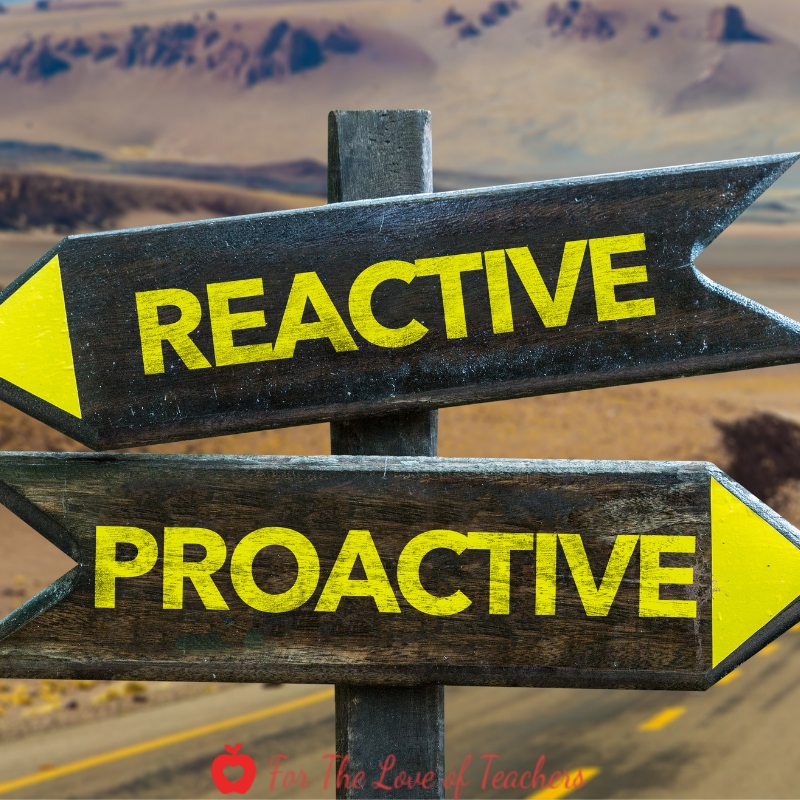
Which path are you on? Proactive and planned or reactive?
Share your best practices from the classroom so we can learn from each other.
Related Posts:
Which Type of Teacher Are You? A Classroom Teacher or a School Teacher?
Do You Practice Your Craft?
Be sure to visit the Shop for classroom management resources and don’t forget to join the email list to receive the latest and greatest updates, plus some awesome freebies!!
Thanks for reading!
If you like it, then pin it,
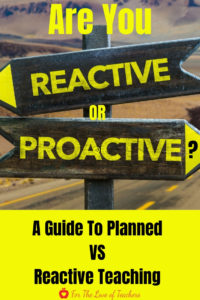


Christine Weis is a passionate educator, classroom management coach, wife, and mom of two busy boys. She enjoys teaching, writing, and creating resources for teachers.
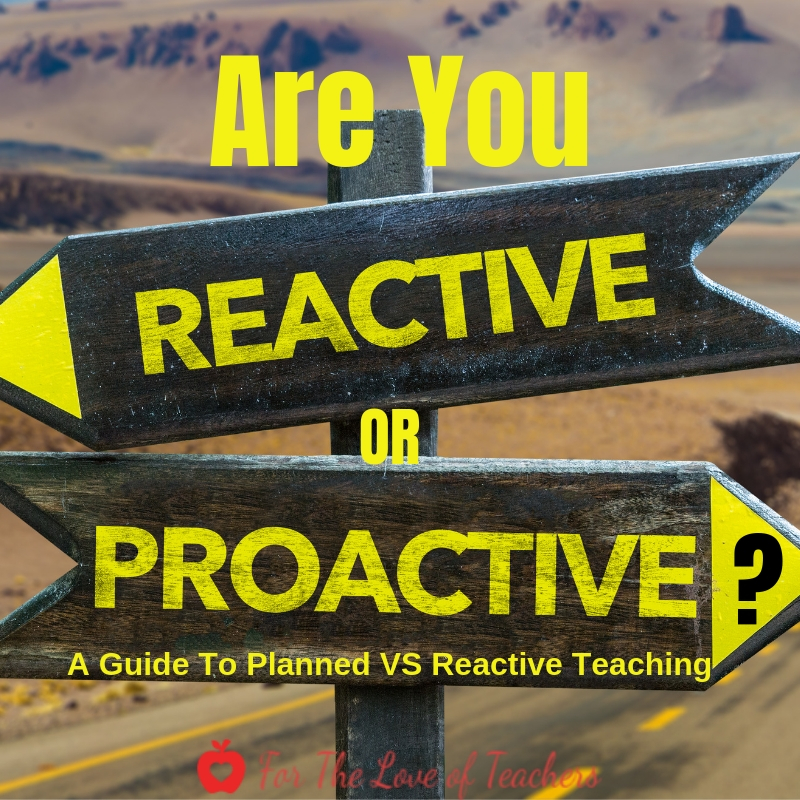
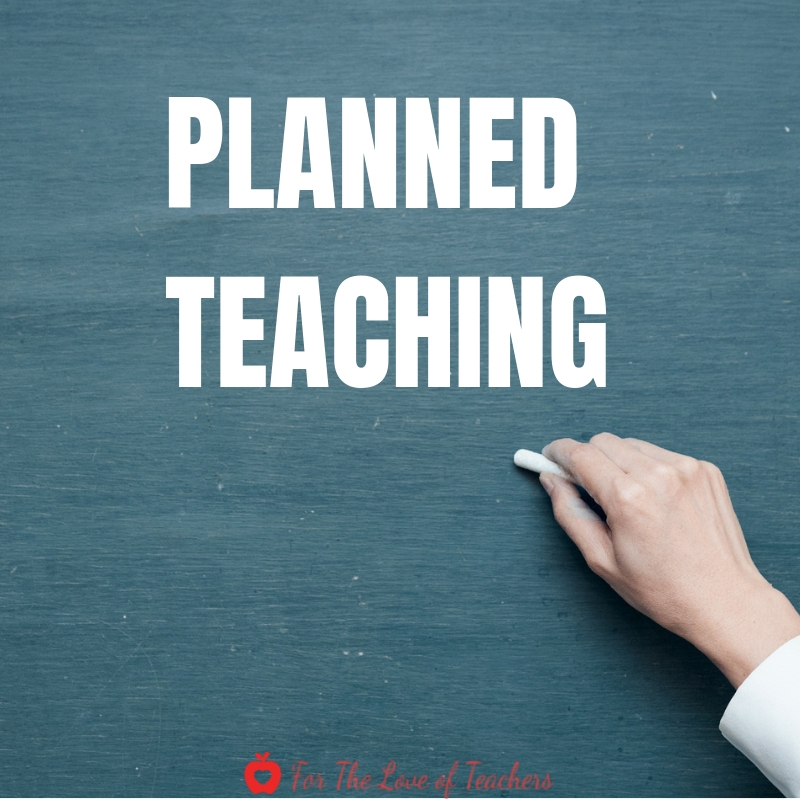
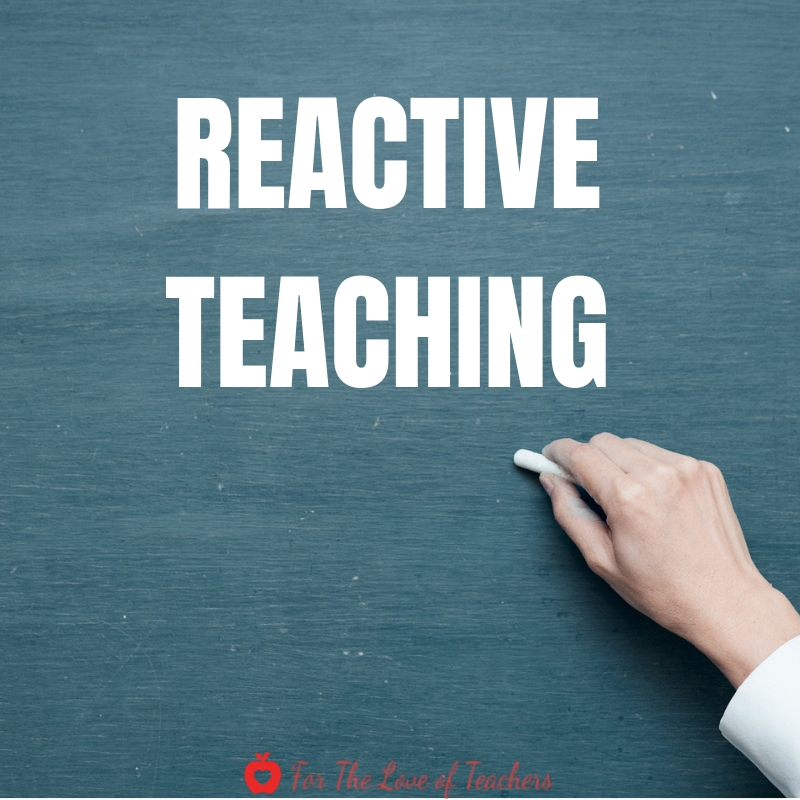
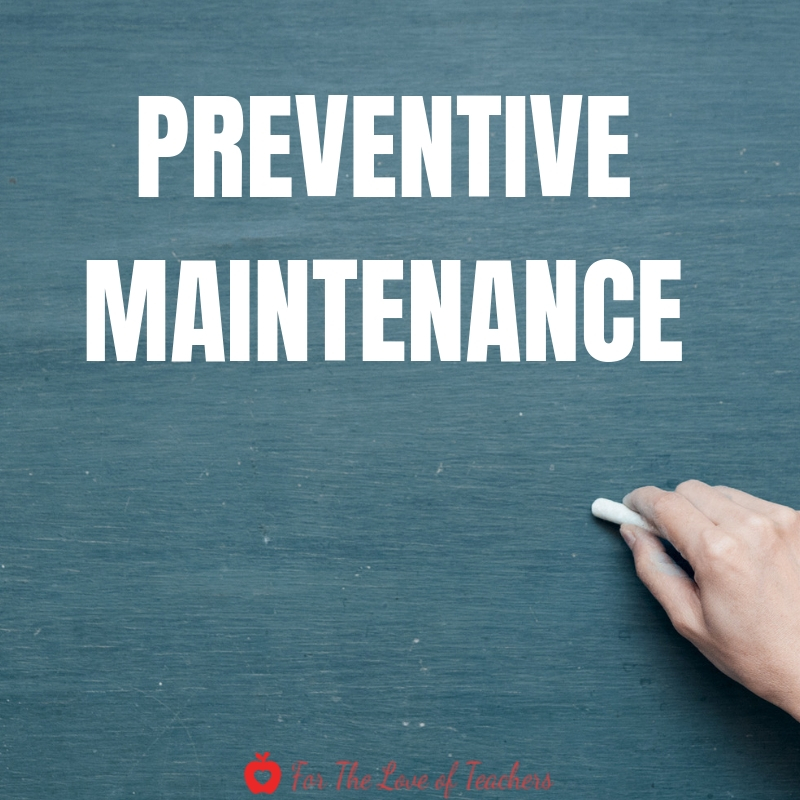




I am not a teacher, but in life I try to be proactive. Interesting thoughts here. I am enjoying reading your insightful blog. Lucky kids who have you as their teacher.
Thank you so much! I’m glad you enjoy reading my posts. I really appreciate your kind comment. Thanks so much for reading!
Christine at For The Love of Teachers
As a homeschool mum, I started off trying to be proactive but ended up as reactive. And that’s largely bled into the rest of my life as well. When travelling, I plan in advance by researching a place. Then, when we arrive we pull up all the research and decide what we’re interested in in the moment.
It’s a tough job to be a parent and to homeschool your own kids. I could never do it. Planning though is key to keeping it all together. Thanks for reading!
Christine at For The Love of Teachers
I am not a teacher, but I am a parent. I am also so appreciative of teachers, because it’s a hard job trying to inspire kids to learn or to deescalate melt-downs. Very interesting to learn about Planned and Reactive teaching!
Thank you for appreciating teachers. Teachers appreciate parents too. 😉 I’m glad you found this post interesting. Thanks for reading!
Christine at For The Love of Teachers
Definitely not a teacher, and I think I would be a terrible one, but I am definitely reactive towards my kids. This is helpful so I could be more proactive.
I hear ya! Many parents are reactive, including me sometimes. It’s not easy being a parent. I’m glad these strategies can help. Thanks for reading!
Christine at For The Love of Teachers
I strive to be a proactive planner so that there’s little to no breakdown in my system. If there is, it would be quicker for my to make a new plan.
That’s great! It’s all about good planning and being proactive in everything we do. Thanks for reading!
Christine at For The Love of Teachers